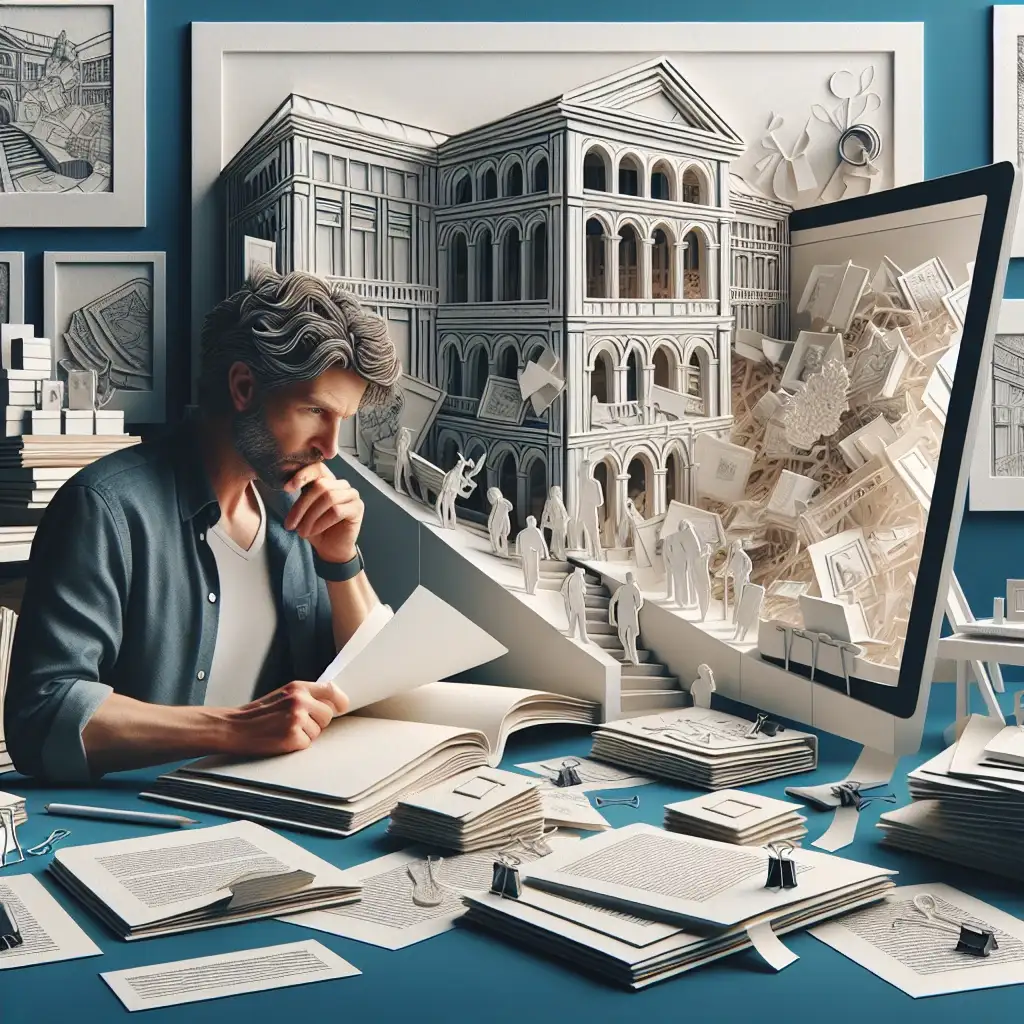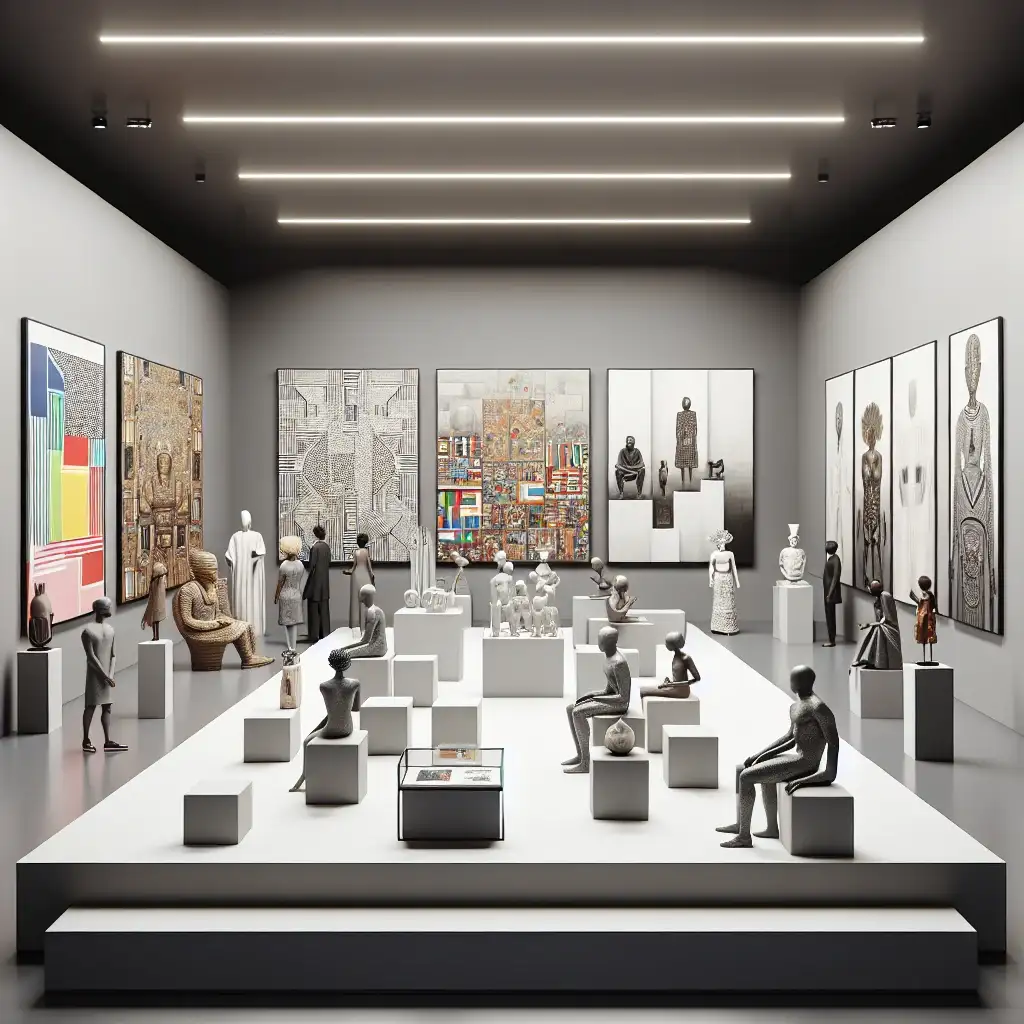Are you looking to showcase your art in a captivating exhibition? Crafting a compelling art exhibition proposal is key to getting your work in front of audiences and curators. By aligning your proposal with a venue’s core values and exploring past successful exhibitions, you can increase your chances of acceptance. Attending other exhibits for insights and understanding submission requirements are crucial steps in creating a standout proposal as well. But did you know that developing a unique exhibition theme can truly make your proposal shine?
Choosing a theme that resonates with you, considering current cultural trends, and ensuring it suits the venue are all vital elements in the process. Your theme should tie all artworks together cohesively and tell a compelling story. This critical step sets the tone for your entire exhibition. So, are you ready to learn how to prepare a strong artist statement and create a detailed project plan that will impress curators and elevate your artwork to new heights? Let’s dive in!

Identify the venue's core values
Before creating your art exhibition proposal, research the venue's core values and mission statement. Align your proposal with these values to increase your chances of acceptance. For example, if the venue values community engagement, highlight how your exhibition will involve the local community.
Explore past successful exhibitions
Study past exhibitions held at the venue to understand what types of art they have showcased. Take note of themes, styles, and artists that have been well-received by audiences. Use this information to tailor your proposal to fit the venue's preferences.
Attend other exhibits for insights
Attend other art exhibitions in your area to gain insights into different presentation styles and themes. Observe how artists engage with viewers and how the artwork is curated and displayed. Apply these observations to enhance the appeal of your own exhibition proposal.
Understand their submission requirements
Carefully read the venue's submission guidelines to ensure your proposal meets all requirements. Include all necessary materials such as artist statements, CVs, and high-quality images of your artwork. Failure to follow submission guidelines may result in your proposal being rejected.
Contact the venue for details
Reach out to the venue's exhibition coordinator or curator to discuss your proposal in more detail. Ask about available exhibition dates, space limitations, and any additional information they may require. Building a personal relationship with the venue staff can improve your chances of getting your proposal accepted.

Brainstorm and list your ideas
Start by brainstorming different ideas for your art exhibition proposal. List out all the possible themes, concepts, and artworks you would like to showcase. Consider what message you want to convey and how you want to engage your audience.
Choose a theme that resonates
Select a theme that resonates with you personally and that you are passionate about. Ensure that the theme is both unique and compelling to your audience. Your theme should tie all the artworks together cohesively and tell a story.
Consider current cultural trends
Research current cultural trends and art movements to see if your theme aligns with any of them. Being aware of what is popular in the art world can help make your proposal more relevant and engaging. Consider how you can put a unique twist on current trends to make your exhibition stand out.
Ensure the theme suits the venue
Take into account the venue where your exhibition will take place and ensure that your theme fits the space. The theme should complement the aesthetic and atmosphere of the venue. Consider how you can use the space to enhance the impact of your artworks.
Refine and finalize your theme
Refine your theme by narrowing down your ideas and focusing on the most compelling aspects. Make sure your theme is clear, coherent, and easy to understand for both yourself and your audience. Finalize your theme by fleshing out the details and creating a cohesive vision for your art exhibition proposal.

Write about your artistic journey
Start off by sharing your artistic background and how you got into creating art. Explain the pivotal moments in your life that have influenced your artistic style and vision. Make sure to convey your passion for art and why it is important to you personally.
Explain your theme and inspiration
Detail the specific theme or concept that your art exhibition will revolve around. Describe what inspires you and how it connects to the theme of your exhibition. Show how your unique perspective and experiences inform your chosen subject matter.
Discuss your techniques and materials
Provide insight into the techniques and mediums you use to create your art. Explain why you use these specific methods and materials and how they enhance your artistic vision. Demonstrate your skill and expertise in utilizing these techniques to bring your ideas to life.
Showcase previous successful projects
Feature examples of past exhibitions or projects that have been well-received by audiences and critics. Highlight any awards, accolades, or notable achievements you have received for your artwork. Illustrate the growth and evolution of your artistic practice through the progression of your previous work.
Edit and proofread carefully
Take the time to carefully review and revise your art exhibition proposal for any errors or inconsistencies. Ensure that your writing is clear, concise, and effectively communicates your vision to potential sponsors or curators. Ask for feedback from trusted friends or colleagues to help refine and polish your proposal before submission.

Outline the exhibition's timeline
Start by establishing the start and end dates of your exhibition. Break down the timeline into smaller tasks, such as selecting artwork, securing a venue, and promoting the exhibition. Having a clear timeline will help you stay organized and ensure that everything is completed on time.
List required resources and materials
Make a detailed list of all the resources and materials you will need for your exhibition. This may include things like display fixtures, lighting equipment, promotional materials, and any specialized tools for installation. Having a comprehensive list will help you budget and plan effectively.
Detail installation and logistics plan
Create a detailed plan for how the artwork will be installed and displayed in the exhibition space. Consider logistical factors such as transportation, setup time, and any special requirements for handling the artwork. Having a clear installation plan will ensure that the exhibition runs smoothly and looks professional.
Provide a budget and funding info
Create a detailed budget that includes all expenses associated with the exhibition, such as venue rental, marketing costs, and materials. Research potential funding sources, such as grants, sponsorships, or crowdfunding, to help cover these expenses. Having a solid budget and funding plan will demonstrate your professionalism and show that you are prepared to bring your vision to life.
Include a marketing and publicity plan
Develop a marketing and publicity plan to promote your exhibition to a wider audience. Consider strategies such as social media promotion, press releases, and collaborations with other artists or organizations. By creating a strong marketing plan, you will increase awareness of your exhibition and attract more visitors.

Choose a clean and cohesive layout
When creating your art exhibition proposal, the layout is crucial in capturing the attention of the viewer. Ensure that your proposal is visually appealing by choosing a clean and cohesive layout that highlights your artwork. Use a consistent color scheme, fonts, and spacing to create a professional and polished look.
Include high-quality images of work
High-quality images of your artwork are essential to make a compelling art exhibition proposal. Make sure to showcase your best work with clear, well-lit photographs that accurately represent your art. Including a variety of images can give the viewer a comprehensive view of your artistic style.
Add sketches or mock-ups of display
Adding sketches or mock-ups of how your artwork will be displayed can help the viewer visualize your vision for the exhibition. Include drawings of the layout, placement of the artwork, and any special installations or interactive elements. This can give a sense of the overall aesthetic and atmosphere you intend to create.
Incorporate artist bio and resume
Your artist bio and resume provide important background information to give context to your work in the art exhibition proposal. Include a brief biography highlighting your artistic journey, achievements, and influences. Adding your resume with exhibition history, education, and relevant experience can add credibility to your proposal.
Format for easy reading and navigation
To ensure that your art exhibition proposal is engaging and easy to navigate, pay attention to formatting. Use headings, subheadings, and bullet points to break up the text and make it easier to read. Include a table of contents or navigation links to help the viewer quickly find relevant information.
In conclusion, by aligning your art exhibition proposal with a venue’s core values, exploring successful past exhibitions, attending other exhibits for insights, and understanding submission requirements, you can increase your chances of acceptance. Choosing a unique theme that resonates with you, considering current cultural trends, and ensuring it suits the venue are vital steps in creating a compelling proposal. Developing a strong artist statement, creating a detailed project plan, and designing a professional presentation will elevate your artwork and impress curators and audiences.
Remember, researching the venue thoroughly, brainstorming and refining your exhibition theme, preparing a detailed project plan, and designing a professional proposal presentation are all essential elements in crafting a captivating art exhibition proposal. By following these steps with passion and dedication, you can showcase your art in a way that truly resonates with viewers and leaves a lasting impression. So, get ready to make your mark in the art world with a standout exhibition proposal that reflects your unique artistic vision and talent.

